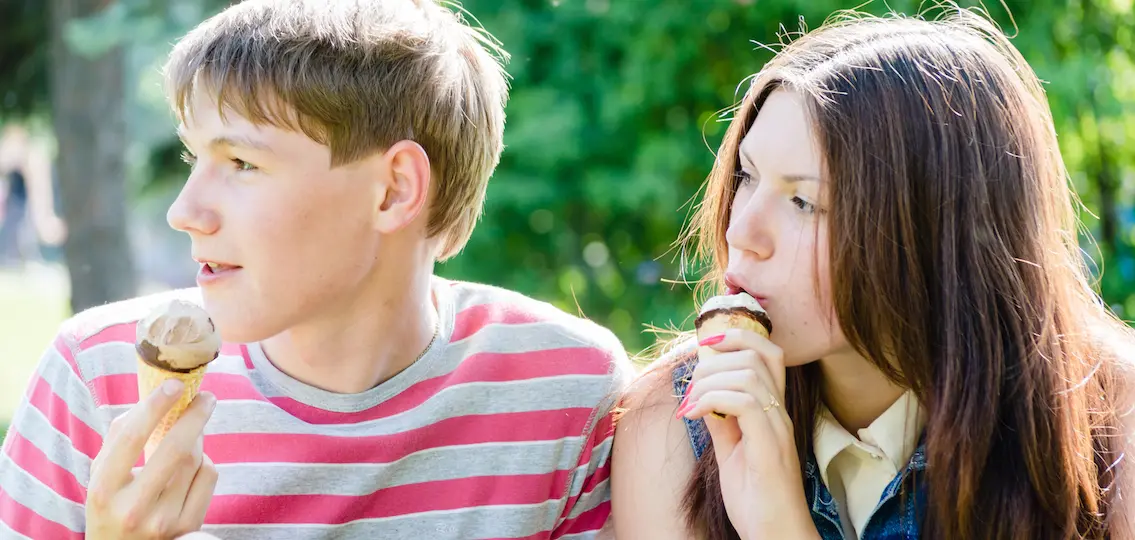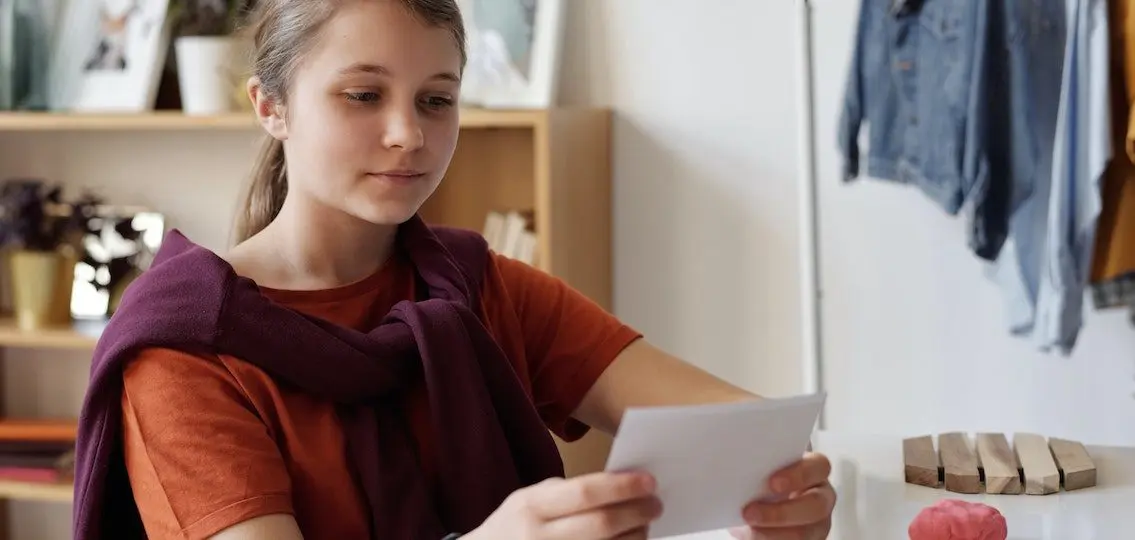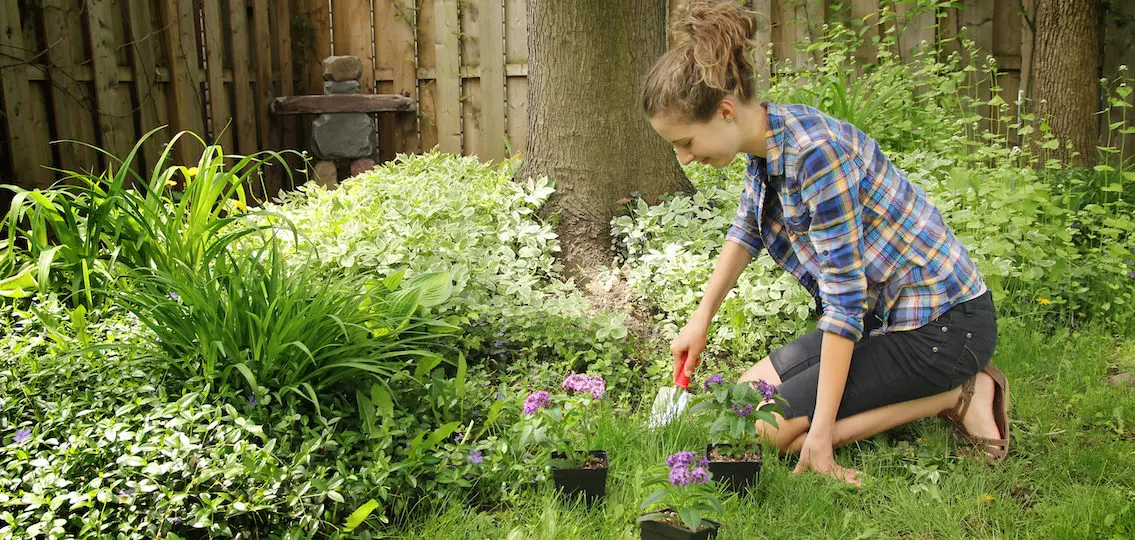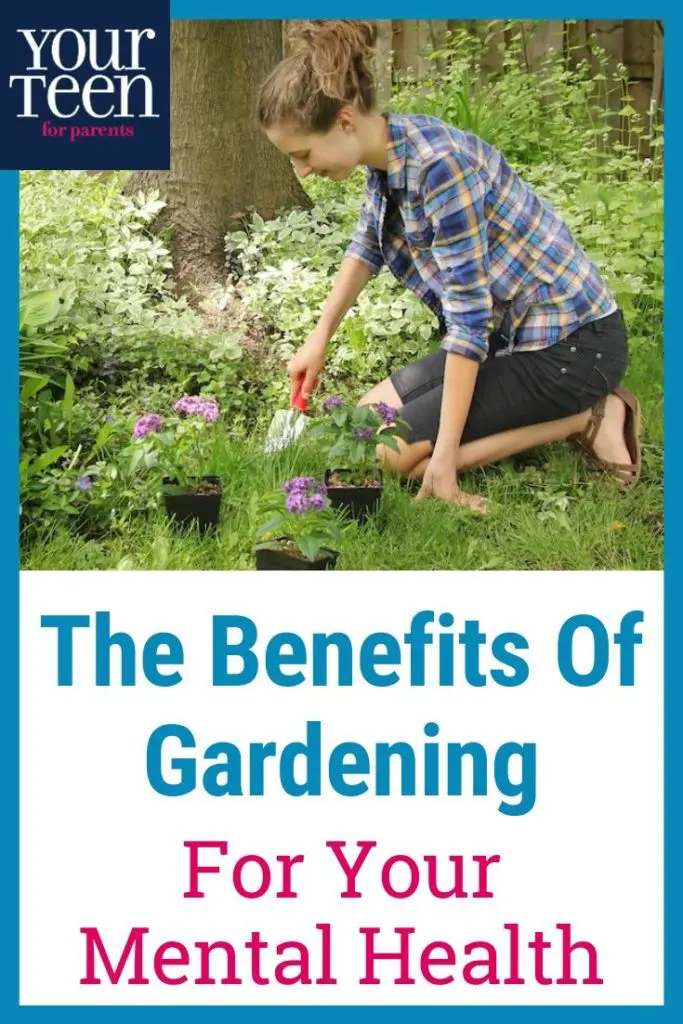I remember the first flowers I grew in a garden. I was a preteen when my stepmother bought me a packet of bachelor’s buttons seeds and we planted them in the backyard. When they bloomed, the flowers were leggy and sparse, but I was thrilled. When I was a teen, my parents fostered a beehive on our suburban lot, and I learned to distinguish between honeybees and yellow jackets. As an adult, my garden is my happy place. I call it “dirt church” and, it turns out, there’s some science to it. Gardening is good for our mental health.

Whether we’re quarantined or not, spring is here. We could all use a little more wellness in our lives, and gardening may just be the answer for you and your teen.
How Gardening Makes Us Mindful
Gardening fosters mindfulness by engaging the five senses, which helps us stay grounded in times of distress, says Rameshwari V. Tumuluru, M.D., psychiatrist and medical director of the Adolescent Acute Partial Hospitalization Program at University of Pittsburgh Medical Center’s Western Psychiatric Hospital. Dr. Tumuluru created an on-site Mindfulness, Healing and Wellness Garden that helps her patients manage overwhelming emotions. “The whole concept of mindfulness is to be aware of the present moment without judgment,” she says.
Right now, the present moment means social isolation, and depression or anxiety can amplify the discomfort of that. But the acceptance aspect of mindfulness can help, says Dr. Tumuluru. “This pandemic is a reality. It’s not something you are causing. It’s something that is, and it is restricting everyone’s life.”
By allowing your teen to feel in the present, and acknowledge current realities, a parent fosters emotional safety, says Dr. Tumuluru. Without judgment or rejection of your teenager’s feelings or experience, you allow them to be who they are in that moment. “It helps them stay calm, and once they are calm they can apply the skills we are teaching them.”
“The garden teaches this skill of mindfulness naturally,” she says, whether we’re putting hands in dirt or nurturing a seedling to a flower, fruit, or vegetable. Because maintaining a garden engages the body, mind, and senses, it can act as a self-soothing technique.
Teens who judge themselves can find reassurance in nature, too. “In the garden we can show them that in nature, things are not perfect,” explains Dr. Tumuluru. The tomatoes in the garden are not perfect, but they’re still beautiful and delicious.
Gardening Gets Them Talking
Many therapists use play therapy to engage children in an activity so they’re not focused on the act of talking. Gardening offers the same type of experience for adolescents. “They’re focused on the act of doing, and it brings them out of their shell,” says Dr. Tumuluru.
If you already have a garden, invite your teen to help you tend to it and add to it. Give them some creative control as enticement. Do you have a pet? Growing catnip or installing a simple dog-friendly fountain might just be the garden addition that gets your teen interested. Meet them where their interests lie to create the connection. If you don’t have a garden, you can start small with pots on a porch or deck—and let your teenager be a partner in planning it.
Starting Small
If starting from seed is intimidating, start with seedlings from your local greenhouse. Many offer online ordering and contact-free pick-up to abide by social distancing protocols. If your local greenhouse is closed due to state restrictions, you can also order live plants online.
Green space and flowers have become scarce in some urban and suburban areas, and that’s not good for the birds and insects that are important for pollination. Even a potted flower on the balcony provides an option that wasn’t there before and can attract those important pollinators. Scott Beuerlein, the manager of botanical garden outreach at the Cincinnati Zoo & Botanical Garden, advises thinking about bloom times to help pollinators—you can either pick flowers that bloom at different times or an annual that blooms all season.
Even in quarantine, the garden is a way to do something positive in this difficult time. “You can give back to this world in some way, which helps us all feel better,” says Beuerlein.

Put another way, Dr. Tumuluru says, “From the seeds of mindfulness, the feelings of health and hopefulness will grow.” And hopefulness is a powerful feeling in a time of uncertainty.





